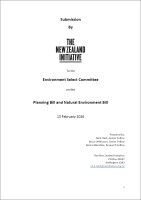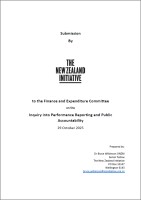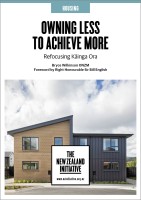This webinar launches "Owning Less to Achieve More: Refocusing Kāinga Ora", a report by Dr Bryce Wilkinson arguing that government should fund people, not property. Hosted by Dr Oliver Hartwich and featuring the Rt Hon Sir Bill English (former Prime Minister; chair of the 2024 Independent Review of Kāinga Ora), the discussion explores how separating funding from ownership through voucher-style support, releasing under-utilised land, and diversifying providers could lift housing outcomes, restore fiscal sustainability, and empower tenants—drawing on OECD practice and New Zealand’s social investment approach. Read more











